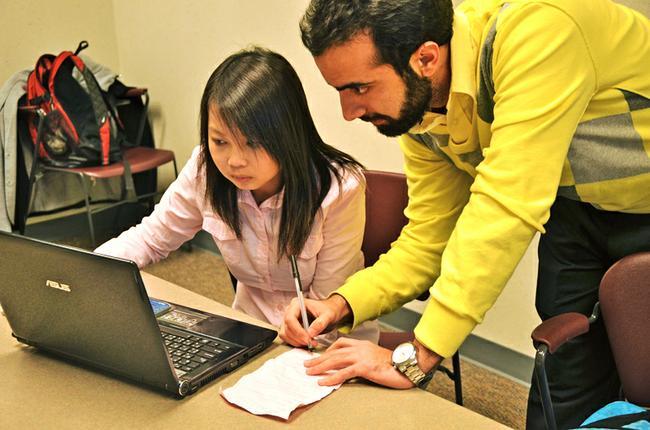
The number of students choosing to study abroad during their time at MU reached a record high during the 2009-10 school year.
MU student participation in these programs is above the national average, according to an MU news release.
Study Abroad Director Barbra Lindeman said throughout the previous year, MU has observed a 10 percent increase in study abroad interest, compared to the national average of 4 percent. She said this increase is accounted for by students’ competition in a global job market as well as personal benefits.
“An increasing number of university students across the U.S. understand that in order to be competitive in a global job market and to effectively address complex global issues,” Lindeman said. “We all need to gain an understanding of the world views and languages of people outside the U.S.”
Lindeman said the personal benefits to studying abroad for students include the ability to view their own cultures from a different perspective, greater clarity regarding academic and professional goals, increased independence and greater ability to adapt to differences.
“My experience abroad has made me value my education more,” senior Kate Bohnert said. “I’m more confident in Spanish classes and my problem-solving skills have matured.”
Bohnert has studied abroad in both Peru and Costa Rica, enhancing her medical skills as well as her Spanish-speaking ability. She said gaining confidence and being innovative were important for walking places in her experiences.
“You have to adapt to a new culture, which is a maturing process for a lot of people,” she said. “You are outside of your comfort zone. I was more confident coming back.”
According to the release, more than 75 percent of students who chose to study abroad do so on short-term programs.
“We are delighted that such a high percentage of our undergraduates choose to participate in study abroad,” Lindeman said in the release. “Although this is due in large part to increased participation in short-term study abroad programs, we remain committed to offering MU students excellent semester and academic year options as well, which facilitate deeper immersion into host cultures and increased opportunities for language acquisition.”
Despite tough economic situations some students face, Lindeman said students and their families continue to demonstrate interest in increasing their knowledge and skills by investing in study abroad opportunities.
“It enriched my education,” Bohnert said. “They value higher education more in Peru because not everyone can afford it. When I got back, that’s when I was grateful I had the opportunity to have a higher education.”
Lindeman said though fitting studying abroad into students’ schedules can be challenging, most, if not all, degree programs allow room for it with the right planning. For students of highly sequenced majors like nursing, MU is flexible in ensuring they have the same opportunities.
“In situations like this, students can either choose to study abroad earlier in their academic careers before they enter their highly-sequenced courses or to participate on one of the increasing number of short-term programs that MU offers,” she said.
According to the release with MU’s continual increase in international recruitment, the program has experienced a 13 percent growth from the 2010-11 academic year to 2011-12.
Lindeman said information on studying abroad is among the most commonly requested by prospective MU students. The MU Office of Admissions and International Center cooperate to make this information available to students.
“It’s one of the only times in your life that you can get away from school and go abroad,” Bohnert said. “You’re learning on the streets and from your host families. You’re learning how to live for yourself in another country.”